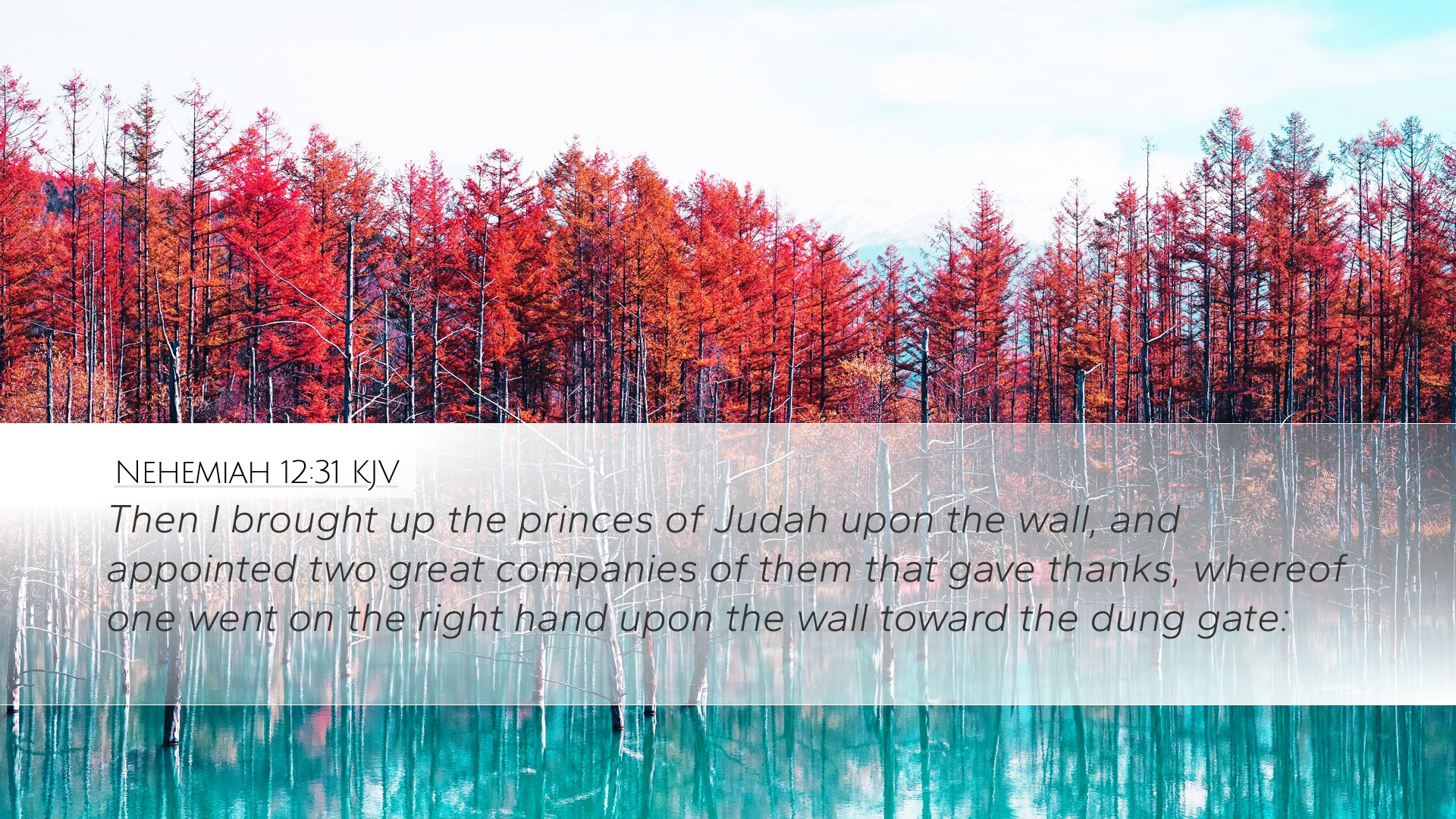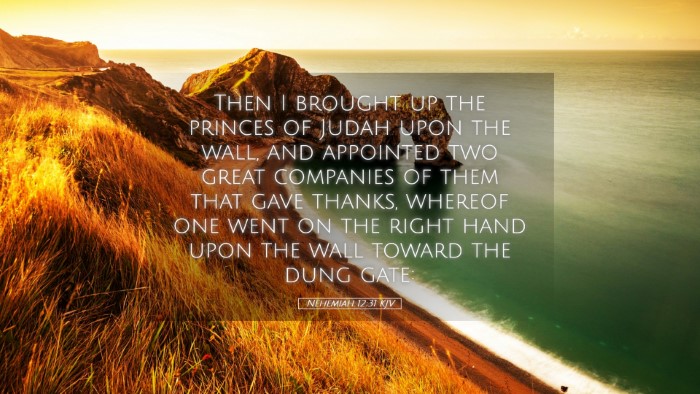Commentary on Nehemiah 12:31
Nehemiah 12:31 states: "Then I brought up the leaders of Judah upon the wall, and appointed two great companies of them that gave thanks, whereof one went on the right hand upon the wall toward the dung gate." This passage captures a significant moment in the post-exilic history of Israel, drawing attention to the dedication of Jerusalem's walls, a restored symbol of divine protection and communal identity.
Historical Context
The rebuilding of the walls of Jerusalem under Nehemiah's leadership was critical for the restoration of the Jewish community after the Babylonian exile. The effort not only provided physical security but also represented a spiritual resurgence as the people returned to their covenant relationship with God.
The Significance of the Dung Gate
The mention of the "dung gate" emphasizes the thoroughness of the reconstruction efforts, even in the less glamorous parts of the city. This reflects the theological truth that all aspects of life, including those deemed lowly or unclean, can be consecrated to God. Adam Clarke notes that the act of bringing leaders to the wall signifies a communal recognition of God's hand in their restoration.
The Role of Leaders in Worship
Nehemiah’s bringing the leaders to dedicate the wall underlines the importance of leadership in worship. Strong leaders inspire and guide their communities in faith and service. Matthew Henry highlights that good leaders should lead by example, actively participating in acts of worship and dedication.
Corporate Worship and Thanksgiving
- Thanksgiving as a Community Act: The division into two great companies for thanks reflects the significance of communal worship. Worshiping together fosters unity and strengthens the community's identity.
- Joy in Worship: Both Nehemiah and the people expressed joy during this dedication, indicating a crucial theological insight: genuine worship is marked by uplifted spirits and a shared sense of purpose.
Theological Reflections
The act of dedicating the wall through thanksgiving serves as a profound theological insight into God's faithfulness. Albert Barnes comments that this event encapsulates a renewal of covenant faithfulness, as the community collectively acknowledges God's providence and care.
The Wall: A Symbol of Covenant Security
The wall around Jerusalem symbolizes not just physical safety but also the spiritual safeguard of the people under God's protection. Through the act of dedication, the community reaffirms their reliance on the Lord, who is their true fortress and shield.
Spiritual Lessons for Today
For contemporary pastors, students, and theologians, Nehemiah 12:31 offers several spiritual lessons:
- The Importance of Community: The shared act of giving thanks serves as a reminder of the importance of community in spiritual growth and development.
- Recognition of God's Work: The act of thanksgiving signifies a recognition of God’s work in our lives, encouraging believers to cultivate a spirit of gratitude.
- Leadership in Worship: The role of leaders is paramount in guiding communities towards worship and thanksgiving, reflecting the need for spiritual mentors today.
Conclusion
Nehemiah 12:31 invites us to consider the intersection of leadership, community, and worship. It challenges us to reflect on how we recognize and celebrate God’s work in our lives. As we gather in worship, may we remember that every part of our community, symbolized by Jerusalem's walls, is valuable and worthy of dedication to God.


